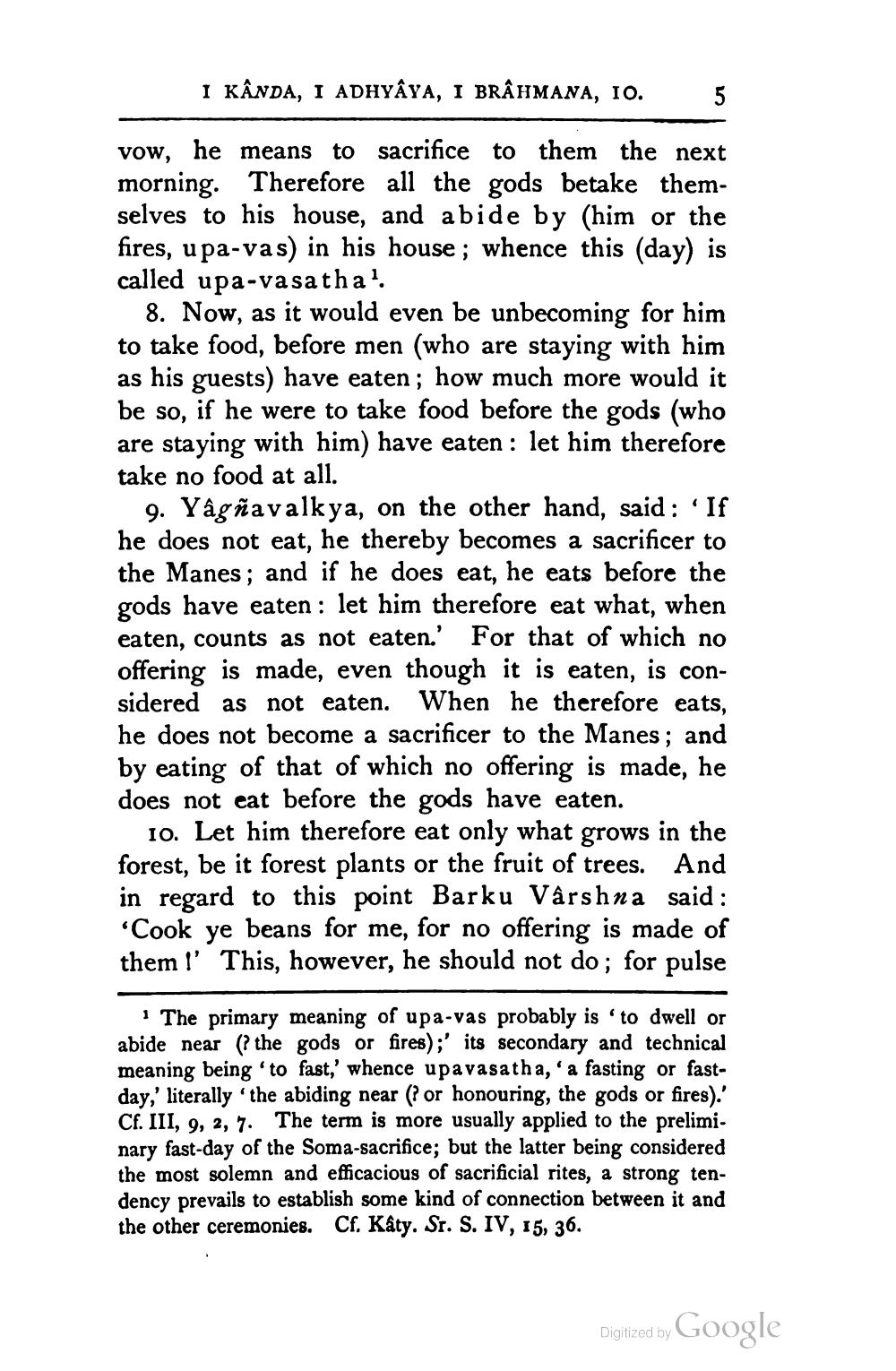________________
I KÂNDA, I ADHYAYA, I BRÂHMANA, 10.
5
vow, he means to sacrifice to them the next morning. Therefore all the gods betake themselves to his house, and abide by (him or the fires, upa-vas) in his house ; whence this (day) is called upa-vasatha'.
8. Now, as it would even be unbecoming for him to take food, before men (who are staying with him as his guests) have eaten; how much more would it be so, if he were to take food before the gods (who are staying with him) have eaten: let him therefore take no food at all.
9. Yagñavalkya, on the other hand, said: 'If he does not eat, he thereby becomes a sacrificer to the Manes; and if he does eat, he eats before the gods have eaten : let him therefore eat what, when eaten, counts as not eaten.' For that of which no offering is made, even though it is eaten, is considered as not eaten. When he therefore eats, he does not become a sacrificer to the Manes; and by eating of that of which no offering is made, he does not eat before the gods have eaten.
10. Let him therefore eat only what grows in the forest, be it forest plants or the fruit of trees. And in regard to this point Barku Vârshna said :
Cook ye beans for me, for no offering is made of them !' This, however, he should not do; for pulse
The primary meaning of upa-vas probably is to dwell or abide near (? the gods or fires);' its secondary and technical meaning being 'to fast,' whence upavasatha,'a fasting or fastday,' literally 'the abiding near (or honouring, the gods or fires).' Cf. III, 9, 2, 7. The term is more usually applied to the preliminary fast-day of the Soma-sacrifice; but the latter being considered the most solemn and efficacious of sacrificial rites, a strong tendency prevails to establish some kind of connection between it and the other ceremonies. Cf. Kâty. Sr. S. IV, 15, 36.
Digitized by Google




